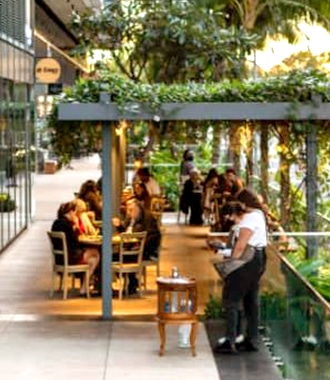Celebrating Earth Day 2020

April 22nd marks the 50th celebration of Earth Day.
Five decades ago, throngs of activists from across the planet turned out to speak up for the protection of Earth. Worldwide, attention began to turn in earnest toward vital issues like water contamination, air pollution, and the implementation of environmental protection laws. In recent years, it’s been estimated that more than 1 billion people from 191 countries across the world give their time and energy on this day to protect the planet.
Although today’s headlines can feel soul-crushing, there remains a glimmer of positivity amidst the outbreak. Across the planet, in cities far and near, the mark of man is beginning to fade. Due to mass social distancing efforts and stay-at-home orders, Venice’s fabled canals, typically imbued with a murky brown hue, are now glisteningly clear. Various media channels have reported that visible schools of fish can now be seen meandering through the waterways. There have even been sightings of dolphins languidly swimming through the canals.
The role that our social distancing efforts have had on the planet can literally be felt. Seismologists, the term for experts who measure and analyze movement on and beneath the earth, have found that the planet is literally vibrating less. According to experts, humanity’s typical day-to-day activity creates a certain level of seismic background noise that experts can pick up with advanced equipment. Since the epidemic, that noise has dropped significantly, showing that by staying inside, the planet is literally shaking less.
From an air pollution standpoint, Earth is entering a new phase as smog begins to clear from cities worldwide. Satellites that monitor nitrogen dioxide, a common form of air pollution emitted from vehicles and power plants, have detected a significant drop in the atmosphere in conjunction with stay-at-home orders. And if you thought that morning birds or the evening crickets seemed louder than normal, you’re not alone. Due to a massive drop in background noise—think street traffic, airplanes flying overhead, etc.—many of us are actually picking up on the sounds of nature at new frequencies. International broadcast radio reporter Sylvia Poggioli recently composed a piece for NPR detailing the eerily quiet sounds of her home in Rome. During lockdown, she reported that many of the streets were so desolate that, “you can actually hear the squeak of rusty door hinges.” In both a heartwarming and spirit chilling turn of words, she reported that the chirping of birds, an early sign of spring, was almost too loud.”
From the beginning, Ward Village has always been a place that holds nature in high esteem. From our namesake, Victoria Ward, who planted sprawling fields of green in her estate, to the tireless efforts Ward Village has undertaken to become a sustainably-minded community, working to ensure that our natural environment remains pristine is a crucial element of our collective story. Although it may seem out of reach today, there will undoubtedly come a time when life returns to normal. It doesn’t take a Ph.D. to realize that the path we were on as a planet was one wrought with peril for the environment. But if there’s any silver lining to be taken away, it’s that our future is hardly set in stone. The Earth has shown how quickly it can begin to heal itself, and we’ve shown ourselves just how adept we can be at adapting. For a brighter future for humanity and the planet, we’d be wise to do the Earth a solid and reshape society around her well-being, not just our own.






